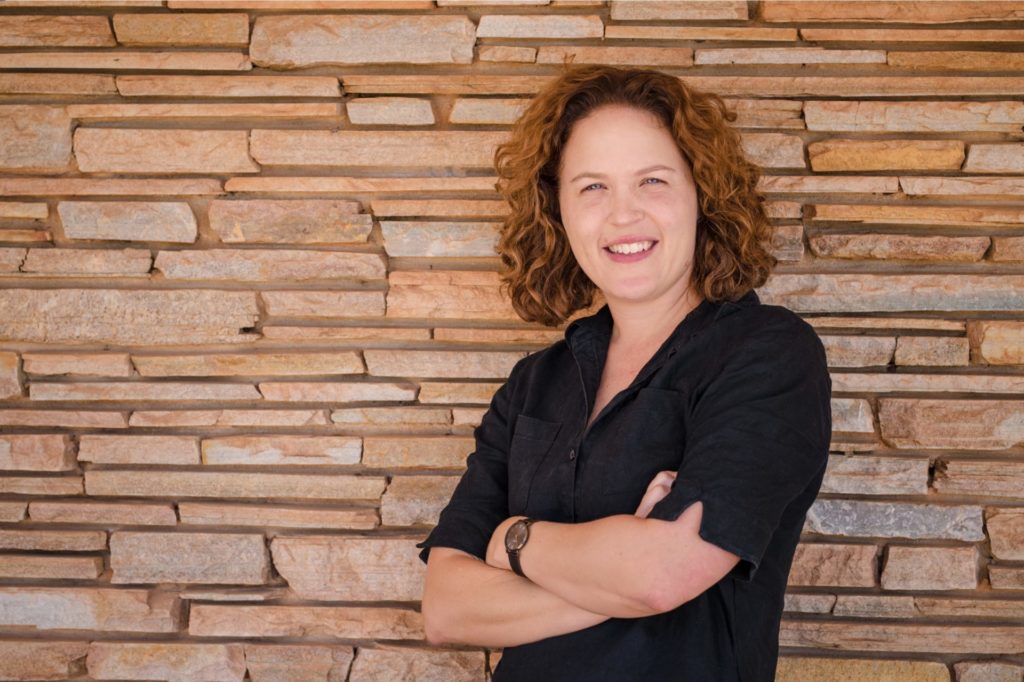We’re profiling women working in agriculture and related fields, thanks to the excellent support of AgriFutures Australia, in line with our weekly publication for women in agriculture, The Ag Wrap.
Caroline Robinson loves to start businesses. But she also loves to hand such businesses on to the next person, and support and connect others in business with what they need to succeed.
In just over a decade, she’s founded two consultancy businesses, a social enterprise cafe as well as the Wheatbelt Business Network, that she continues to run as CEO.
For Caroline, it’s all an opportunity to support the local community and economy that she lives and works in within Western Australia’s Wheatbelt, a region that’s the geographical size of Tasmania.
The Wheatbelt Business Network (WBN) has served a vital role over the pandemic period in helping its members adapt and respond to the health crisis.
Launched in 2010, the WBN saw Caroline named the winner of the 2011 AgriFutures National Rural Women’s Award (formally RIRDC). She used the award’s bursary to further expand the WBN as a conduit to investment in the region.
In 2020, the WBN held the Wheatbelt Excellent Business awards, acknowledging the ten year anniversary of the network and also celebrating more than 100 businesses in the region. Caroline shared during the event how when she started the network, just a handful of businesses were involved — that’s now expanded to 350 members.

Women’s Agenda spoke with Caroline about her experience and passion for the regions, and why supporting small business is everything.
Can you tell us a little bit about your upbringing? Have you always lived in rural Australia and were you always so passionate about it?
My parents are originally from Kenya, they went farming in South America and then immigrated to Australia in the 1970’s.
I was raised in the Perth hills with my two brothers where open space was appreciated. My father worked for Massey Ferguson and later CASE IH and travelled extensively throughout WA and SA in his role. We would often accompany him on work trips to the regions and I think this is where my interest in the country was established. I lived in Perth until my early 20s and then relocated to Southern Cross in WA’s Wheatbelt for work. I thoroughly enjoy working with the different communities in rural WA and raising my two children in a close knit community, where we have everything we need and a farm to enjoy.
What can you tell us about starting the Wheatbelt Network Business in 2010 and what you initially planned to achieve with it?
I founded the Wheatbelt Business Network to help connect and support small business owners across geographically isolated towns in the Wheatbelt. I was a small business owner at the time and found I was searching for like minded business owners to help me grow my business.
Today our purpose is to support business in the Wheatbelt through events, networking, one on one support, information and advocacy. We want to create a region where people and businesses want to live and work.
We have just over 350 members across the region, which is the size of Tasmania.
How did winning the AgriFutures Rural Women’s Award in 2011 help your career, and what did you do with the Wespac bursary?
The AgriFutures Rural Women’s Award helped me build the WBN into what it is today.
The connections and support I received are still benefiting the WBN, my work and the communities I work with.
The generosity of Wespac gave the WBN an injection of confidence that we needed as the Wheatbelt was in drought around the 2010’s and it was a tough period for the business community.
You also started your own consultancy business at the end of 2019. How has the pandemic affected your business, and how have you managed to push through?
What I observed when the health pandemic hit the Wheatbelt was lots of businesses adapting – their hours, theirs services, and how they were engaging with eCommerce, implementing strategies to keep and look after their staff, entering new markets, some even expanding.
My business was not too affected, mostly work was delayed by a few months. However, most of my effort went into the WBN to look after our members, keep them up to date with economic support packages,and things like industrial relations changes, as well as various COVID requirements and advocating for their needs.
It was a period of uncertainty for the WBN Board and staff, but we focused a lot of time and energy on our members because that is the reason the Network exists – for the benefit of our members.
How would you describe your entrepreneurial journey so far, and what’s next for you?
What I have learnt over the last decade is that I really enjoy starting businesses and then handing them on.
In the last ten years I have founded and continue as CEO of the WBN, two consultancy businesses and a social enterprise cafe in Narembeen.
My next step is to continue to build the WBN and nurture the next leader, focus on my consultancy business 150Square, with my business partner and my area of work in strategy and governance for rural NFPs.
I would love to find another business opportunity in the region to continue to contribute to the business community.


